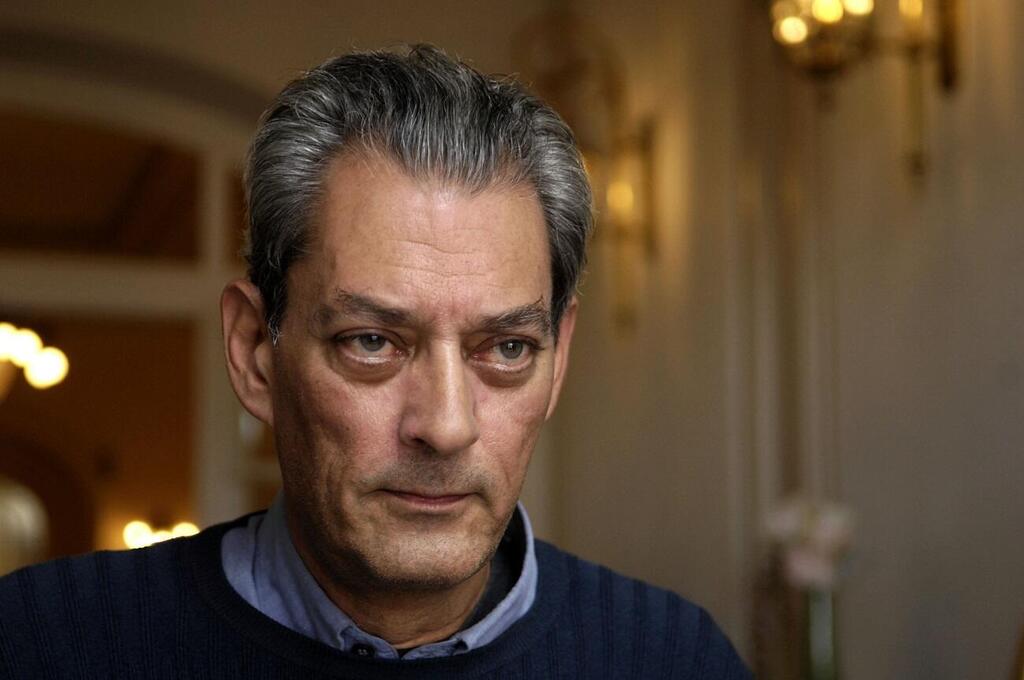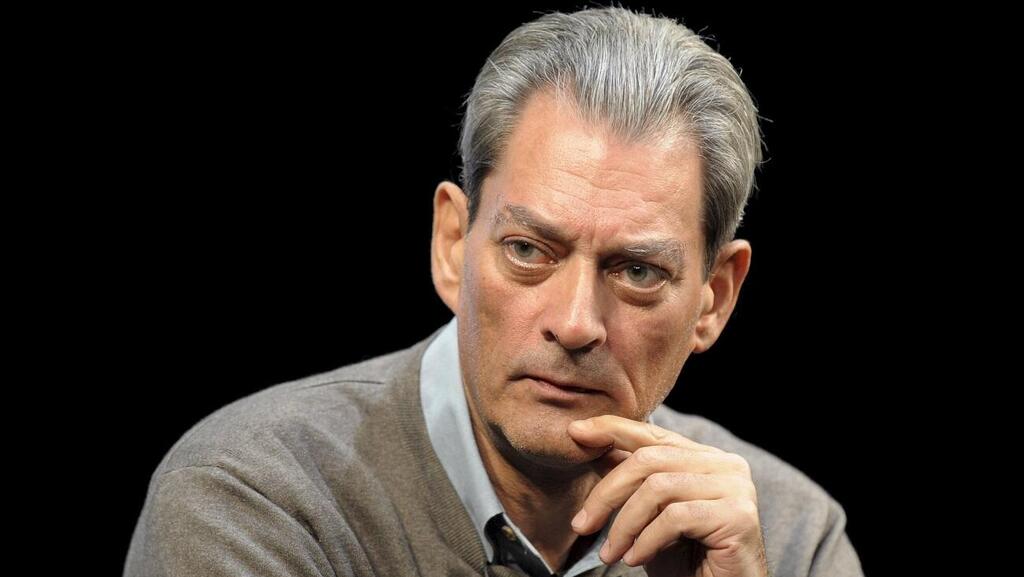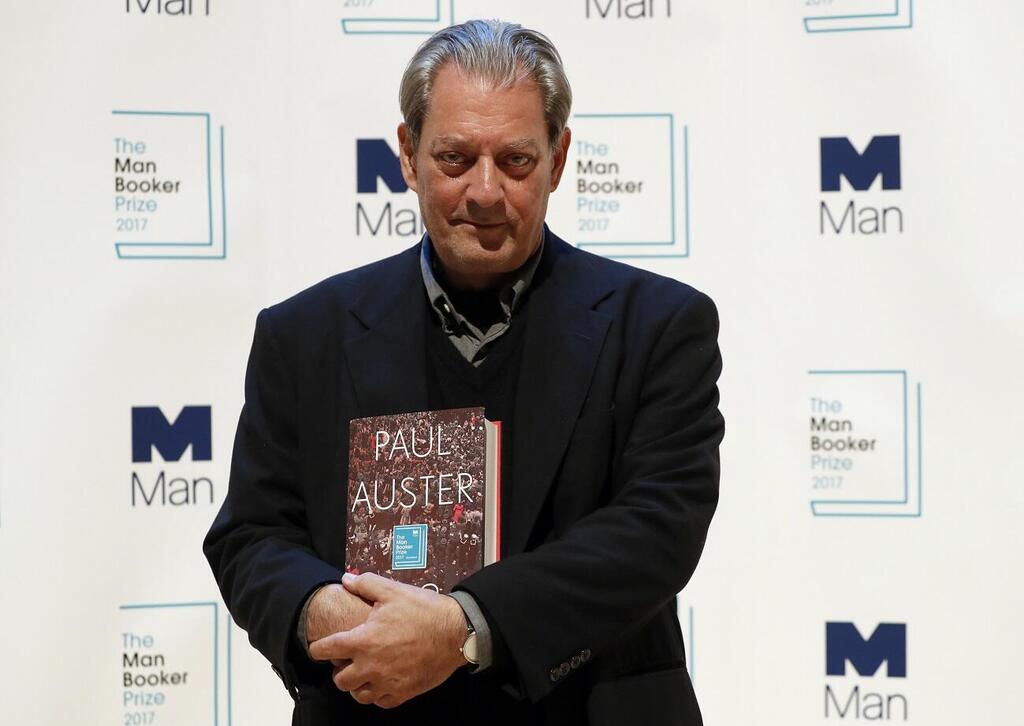Getting your Trinity Audio player ready...
Jewish-American writer Paul Auster, author of 34 books, including The New York Trilogy and Moon Palace, has died at the age of 77 of complications from lung cancer at his home in Brooklyn on Tuesday evening.
"Auster is a writer who taught me to see the world also in terms of paradox and illusion and coincidences (remember?)," Israeli author Yaara Shehori said in tribute to him.
"I read Moon Palace like an autobiography. The New York Trilogy has been with me in every apartment I've lived in. The sadness that gripped me now is very personal. I remember the love with which he told me many times, about how he started to write. He asked for an autograph from Willie Mays, the baseball player he admired, but was not able to get it because he did not have a pencil. Since then, he has always had a pencil. He said that the stadium where he saw Mays is already gone, but the memory of what could have been, of the pencil you didn't have when you needed it most, remains."
Auster is known for "the most stylized, the most outlandish postmodernist fiction, where numbers are rarely reliable, and the basis of the plot is constantly shifting," author Joyce Carol Oates wrote of him in 2010. Over the years, he has won a number of prestigious awards, was shortlisted for the Booker Prize and is considered one of the most beloved writers in the world and in Israel in particular.
Paul Auster was born in New Jersey in 1947, and as a child suffered from hunger which he describes in his book "From Hand to Mouth." His father was an indifferent and estranged man who showed no special interest in his son. The constant and unfulfilled need for a relationship with a father figure was a recurring motif in the artist's work.
When he was 14 he was sent to a summer camp during which his best friend was killed by lightning. The traumatic event left a deep mark on him and, according to him, "completely changed" his life. Until then, he grew up in a religious home and was brought up believing in faith in a higher power, but the arbitrary death led him to a crisis of faith, following which he began to believe in coincidences as the driving force of life. His book The Music of Chance, which was published years later, largely expressed this worldview of his.
He previously said that he started writing at the age of eight, when he missed an opportunity to get an autograph from his baseball hero, Willie Mays, because neither he nor his parents carried a pencil to the game. From then on, he took a pencil everywhere.
"If there's a pencil in your pocket, there's a good chance you'll one day be tempted to start using it," he wrote in a 1995 article. When he was 15, after reading the novel Crime and Punishment by Dostoyevsky, he decided he wanted to be a writer.
As a teenager, Auster managed to escape from the life of poverty, and he studied at Columbia University. Over the years, he experimented with a variety of different jobs, which influenced his writing in both direct and indirect ways. Among other things, he was engaged in oil drilling, film production and inventing card games. After finishing his studies, he moved to France, where he mainly engaged in translation and wrote his first literary works.
He published his debut book, The Invention of Solitude, in 1982, but only a few years later burst into consciousness with his book The New York Trilogy, which describes the events of a detective writer who becomes entangled in a mystery that forces him to switch identities. Auster soon assumed a place of honor in American literature of the late 20th century. Many compare his works to those of playwright Samuel Beckett. Since then he has written dozens of bestsellers.
"When I was young, from the age of 18 to 23 or so, I wrote maybe something like two thousand pages of fiction, but I was not complete with them," he said in 2022 in an interview with Yedioth Ahronoth.
"All these books that I tried to write, in a way seeped into my first novels. They were not a waste of time and work. You will find them in The City of Glass, In the Country of Last Things and Moon Palace. These were materials I wrote in my early 20s, when I was so frustrated with my writing. It took me many years to write it exactly the way I wanted to write it. I spent all that time writing poetry, and I thought I would dedicate the prose."
Auster's work ranges from conflicts and intra-family events to social allegories. The latter are expressed mainly in his book In the Country of Last Things. His writing is clear and simple, but not simplistic. It describes in a unique and meticulous way the heroes of the middle class of American society. His stories also often play on the themes of coincidence, chance and fate. Many of his protagonists are authors themselves, with characters from early novels reappearing in his other books.
"Stories have been brewing inside me for a long time, sometimes years, long before I write them," he said in an interview with Yedioth Ahronoth. "And I think the only books worth writing are the books you have to write. Not just because of the idea of writing a book, but because you really have something to say. Even if you don't know what you have to say, you can feel the urgency. Often, something small might Ignite the story. Like something you saw on the subway.
"...I never went looking for the stories, I wait for them to come. I never said to myself, 'I want to write a book about...', each book for me is made up of different music, and I listen to its sound, to its tone. Each character requires different music. And I listen to the voices and the sounds, they are physical things, you hear the music, and they mean more than the words themselves. Every time I start to write something, I feel like it's something I've never written, and I have to start all over again. I don't understand writers like that - who prepare a line-up of the writing process. But, I hardly know what I'm doing. I just have a strong emotion and I follow it. It's almost like being in a trance. But I'm on a journey and I'm trying to find my way," he explained.
3 View gallery


'Stories have been brewing inside me for a long time, sometimes years, long before I write them,' says author Paul Auster
(Photo: Getty Images)
In addition to the difficulties and obstacles he went through over the years, Auster's family was struck by great tragedy in April 2022, when his son from his first marriage to Lydia Davis, Daniel Auster, was found unconscious on a platform at a subway station in Brooklyn, after a drug overdose.
Daniel was rushed to the hospital where he died six days later while he was being ventilated, at the age of 44. Daniel's death came only 11 days after he was blamed for the death of his 10-month-old daughter Ruby after he injected himself with heroin and fell asleep next to her.
The police report states that when Daniel woke up, he saw that Ruby was "blue, unresponsive and with no signs of life." After her death, it became clear that Ruby had suffered acute poisoning from heroin and fentanyl. Daniel was taken into custody and released a day later on bail. Nine days later, he died in the hospital in Brooklyn.
Auster is survived by his wife, writer Siri Hustvedt, and his daughter, model Sophie Auster. Also, he was a relative of Daniel Auster, who was the first Jewish mayor of Jerusalem and one of the signatories of the Declaration of Independence of the State of Israel.



